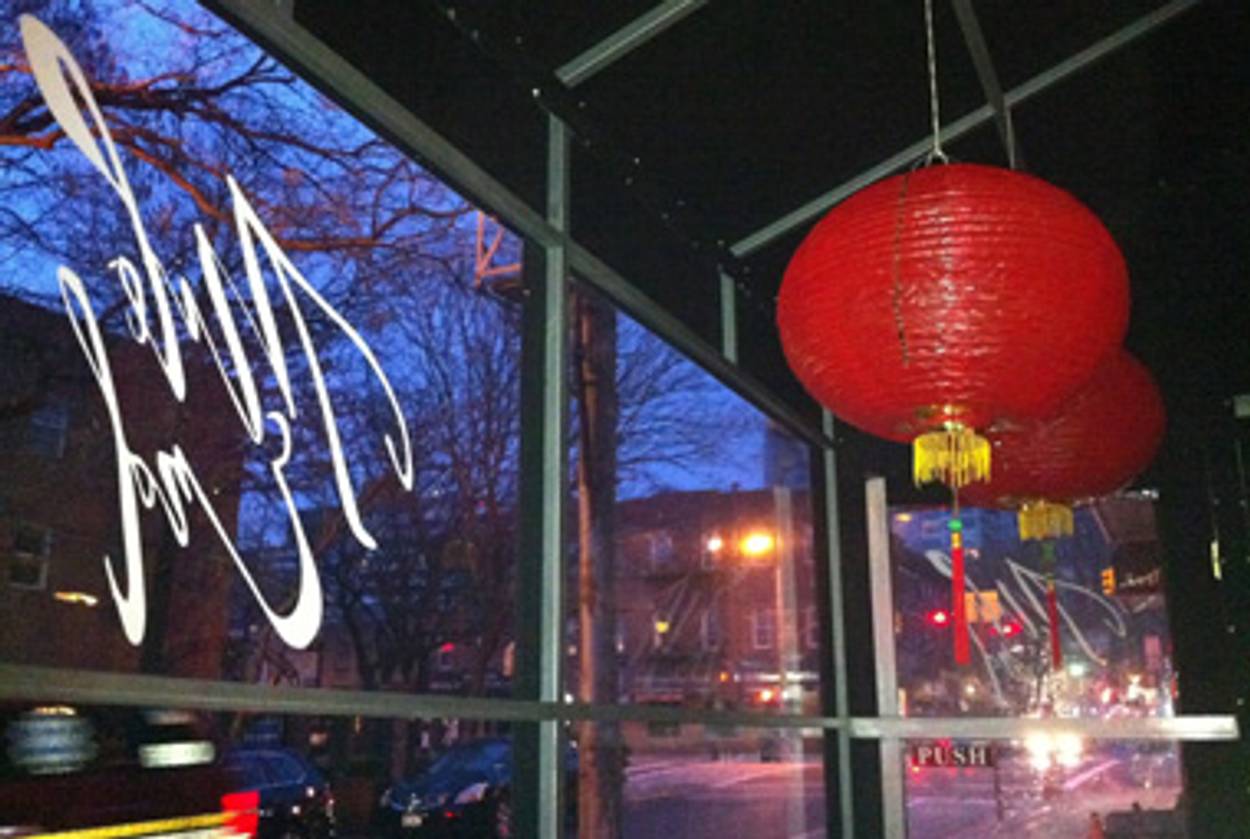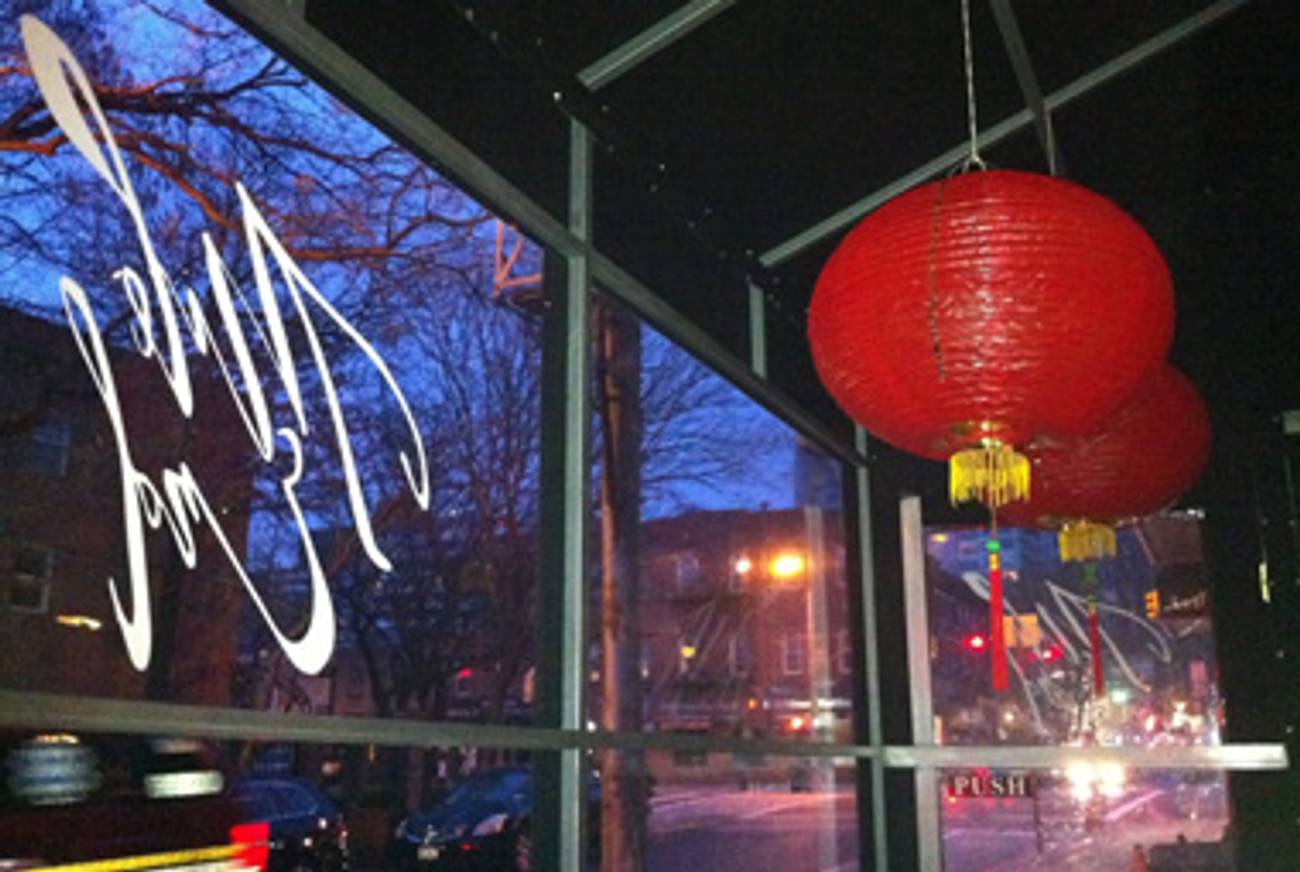Letter of the Kosher Law
A debate over the meaning of Jewish cooking




Benjamin Resnick’s fabulous piece today polemicizes against the trend, among young Jewish cooks and their champions, to cook (and celebrate the cooking of) ostentatiously Jewish food that is also ostentatiously unkosher—dishes like Brooklyn deli Mile End’s bagel sandwich, which contains bacon that it calls chazzer; the Los Angeles restaurant The Gorbals’ matzah ball wrapped with bacon; or virtually the entire menu of Traif, the Brooklyn restaurant that goes out of its way to serve pork and shellfish under a Jewish banner. “To call food ‘Jewish’ only makes sense in the context of what ‘Jewish’ has meant throughout history,” Resnick argues. “That history has included innovation and change, but it has also included a crucial element of preservation and repetition.” He continues, “This isn’t a religious argument. The best ‘Jewish food’ has historically been created by Jewish cooks who were trying, simultaneously, to preserve and innovate.” (One such example turns out to be foie gras, the quintessential high-French dish that actually derives from the laws of kashrut and Talmudic injunction.)
Two people whom Resnick sets himself against are responding. One is Noah Bermanoff, Mile End’s founder and co-owner, who has left a lengthy, heartfelt apologia in the comments (printed in full after the jump). (For the record, I think Bermanoff misunderstands what Resnick exactly means by lazy—nobody could seriously accuse Mile End, which makes everything but the bagels with scrupulous attention to sourcing and detail, as literally lazy. The dispute is more intellectual than that.) The other is, well, me. As I wrote in one blogpost, I think you can make an argument that eating non-kosher food while explicitly recognizing its non-kosherness, given that it relies upon this Jewish definition, is a fundamentally Jewish act. (I actually don’t think Resnick would disagree with that analysis; he would just question its value.) More forcefully, I argued that the decision of Mile End (Bermanoff’s restaurant) to serve Chinese food on December 25 and call it a “Traditional Jewish Christmas” was a necessary step for allowing a younger generation of Jews to claim Jewish culture as their own. (For the record, it was also delicious.)
Good structuralists all, Resnick, Bermanoff, and myself would agree, I suspect, that set rules are essential to artistic creativity, because without rules, there is no rebellion, and without rebellion, there isn’t really art, or at least Modernist or post-modernist art. “It is important to stress—and this has to do with your point about limitation and freedom—that were it not for these limitations, we would not have the creative act of going from a little bit of knowledge, a little bit of experience, to a rich and highly articulated and complicated array of knowledge,” Noam Chomsky told Michel Foucault in their famous debate. “Because if anything could be possible, then nothing would be possible.” Resnick and Bermanoff are both aware of the rules, but where Resnick would totally stick to them, Bermanoff would swerve around them.
Writes Bermanoff:
I grew up in a kosher home and attended Jewish day school. And yet, my Jewish experience included eggs and bacon on Sunday morning at our local diner and weekly ritual devotion to Chinese food. That’s my Jewish experience, the foundation of how we serve Jewish food at Mile End. You are all welcome to have your own personal Jewish experiences; I leave the decision to eat Kosher to you. Mile End has never advertised its food as Kosher and I don’t recall ever locking a Kashrut-observer in our basement and forcing them to eat bacon.
The only blatantly unkosher preparation is our breakfast sandwich, completely apart from the essential Jewish tradition, and on our menu because customers really like it. I don’t see how updating a kasha recipe with chicken gizzards or a cholent recipe with veal shortribs, both potentially kosher ingredients, relates to the arguments made above by Mr. Resnick. Yes, we are updating these dishes, but with proper sourcing, skilled technique, and an eye for detail, not some sort of absolute belief that we need to embark from Jewish culinary tradition to keep it alive. Furthermore, the notion that I’m being lazy is absurd: Mr. Resnick, clearly, has never visited the restaurant, because had he, he would discover that we cure and smoke all of our meats and fish, bake all of our breads, and pickle all of our vegetables. Show me one Kosher restaurant or delicatessen that is attempting to retain the methods of our Ashkenazi culinary tradition like Mile End, Saul’s, Kenny & Zuke’s and Caplansky’s? It will be the return to these methods of preparation rather than strict adherence to Kashrut that will keep the tradition alive.
@Saul: Very appropriate. Much in-line with your commentary, a question that I’m consistently bombarded with: Why is Jewish cooking always conflated with kosher cooking?
Both Resnick and Bermanoff are correct to see themselves as working in unmistakably Jewish traditions. But I wonder at the relevance, and even the utility, of the strictness Resnick would impose upon “Jewish” cooking—while at the same time, I can’t help admiring it, and even being attracted to it. And, by the way, I eat shellfish but not pork. Maybe the most important thing is to draw some line, and where the line is drawn is less important? But I’m not sure. I hope this conversation doesn’t end.
Unkosher [Tablet Magazine]
Related: Jewish Christmas [Tablet Magazine]
Earlier: Toward a New Kosher?
Marc Tracy is a staff writer at The New Republic, and was previously a staff writer at Tablet. He tweets @marcatracy.